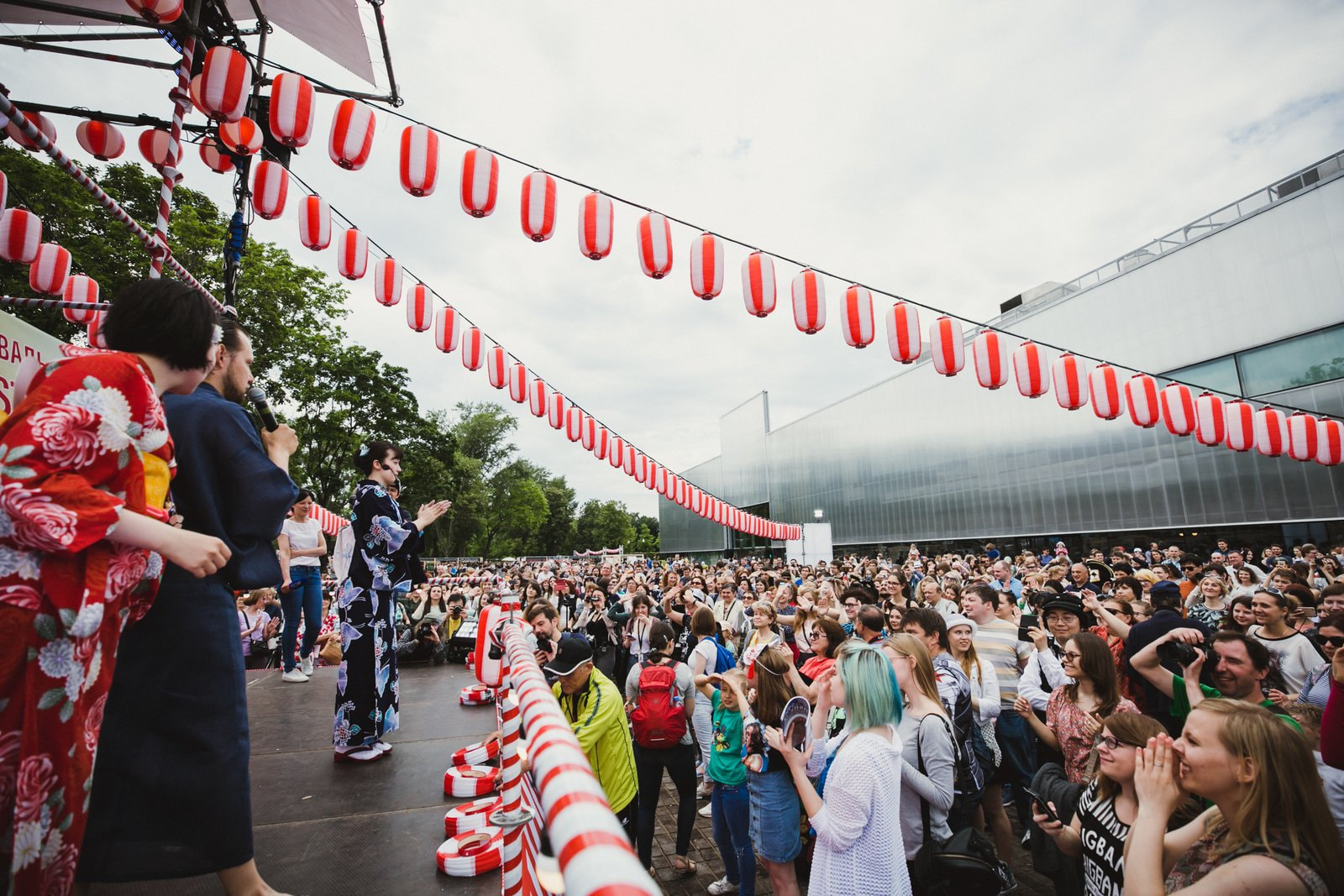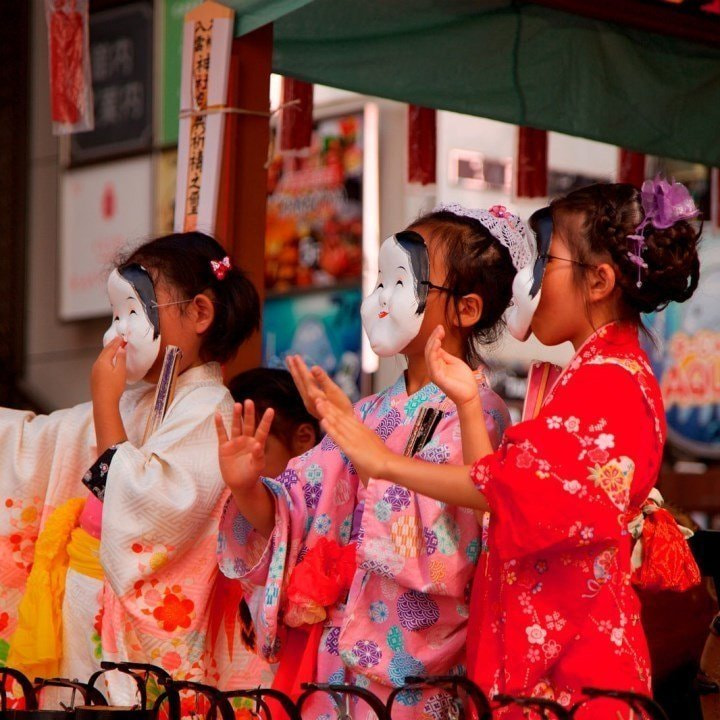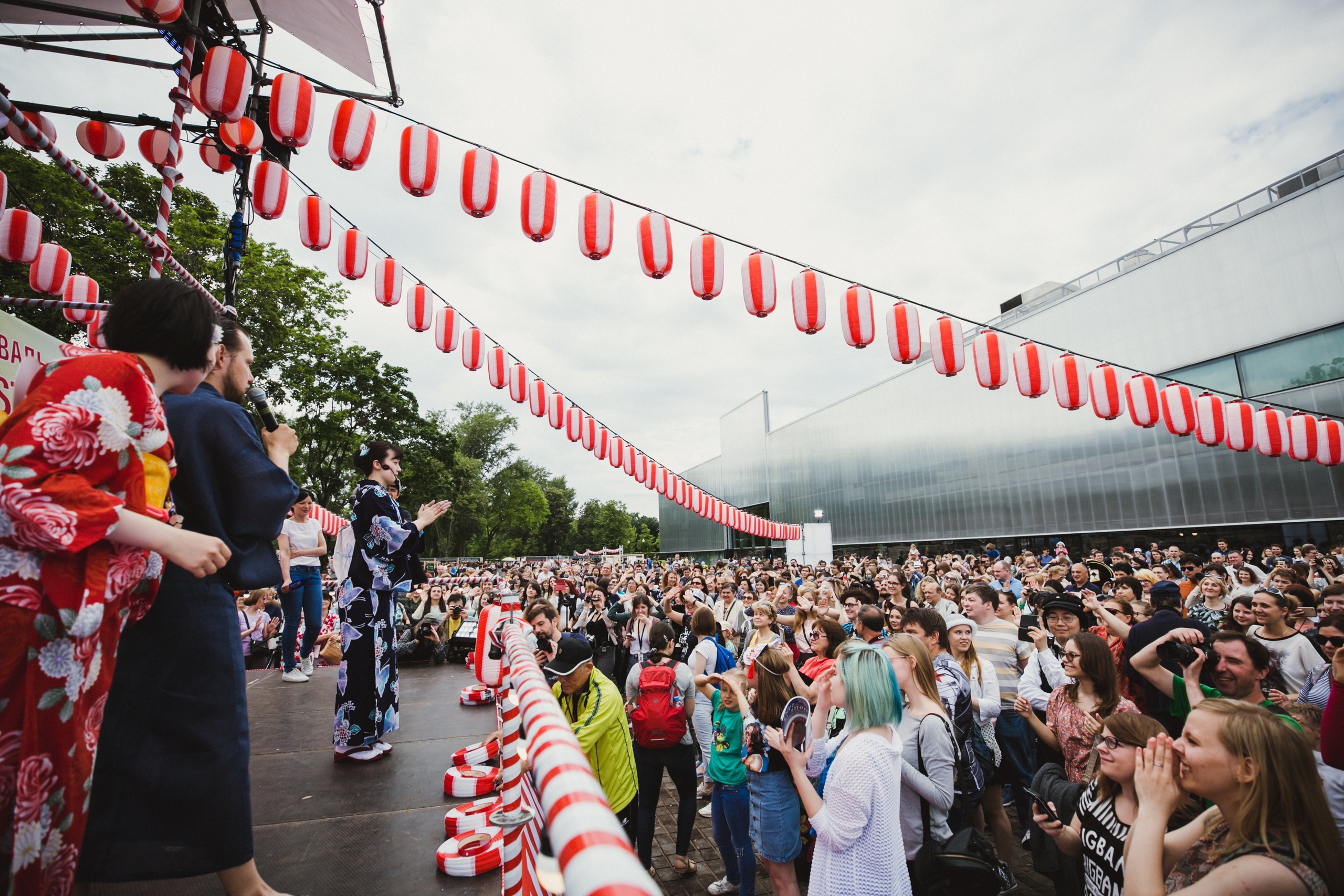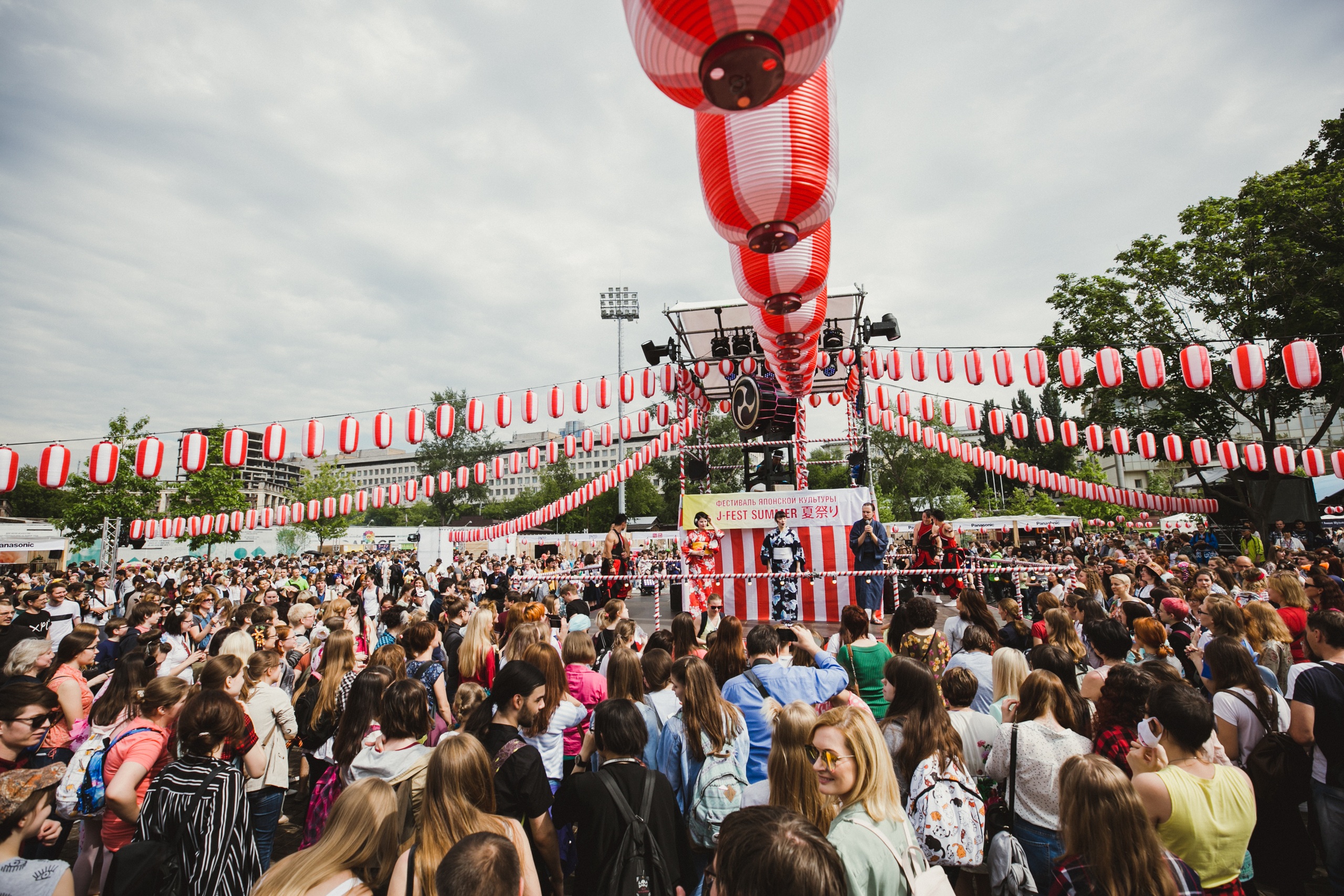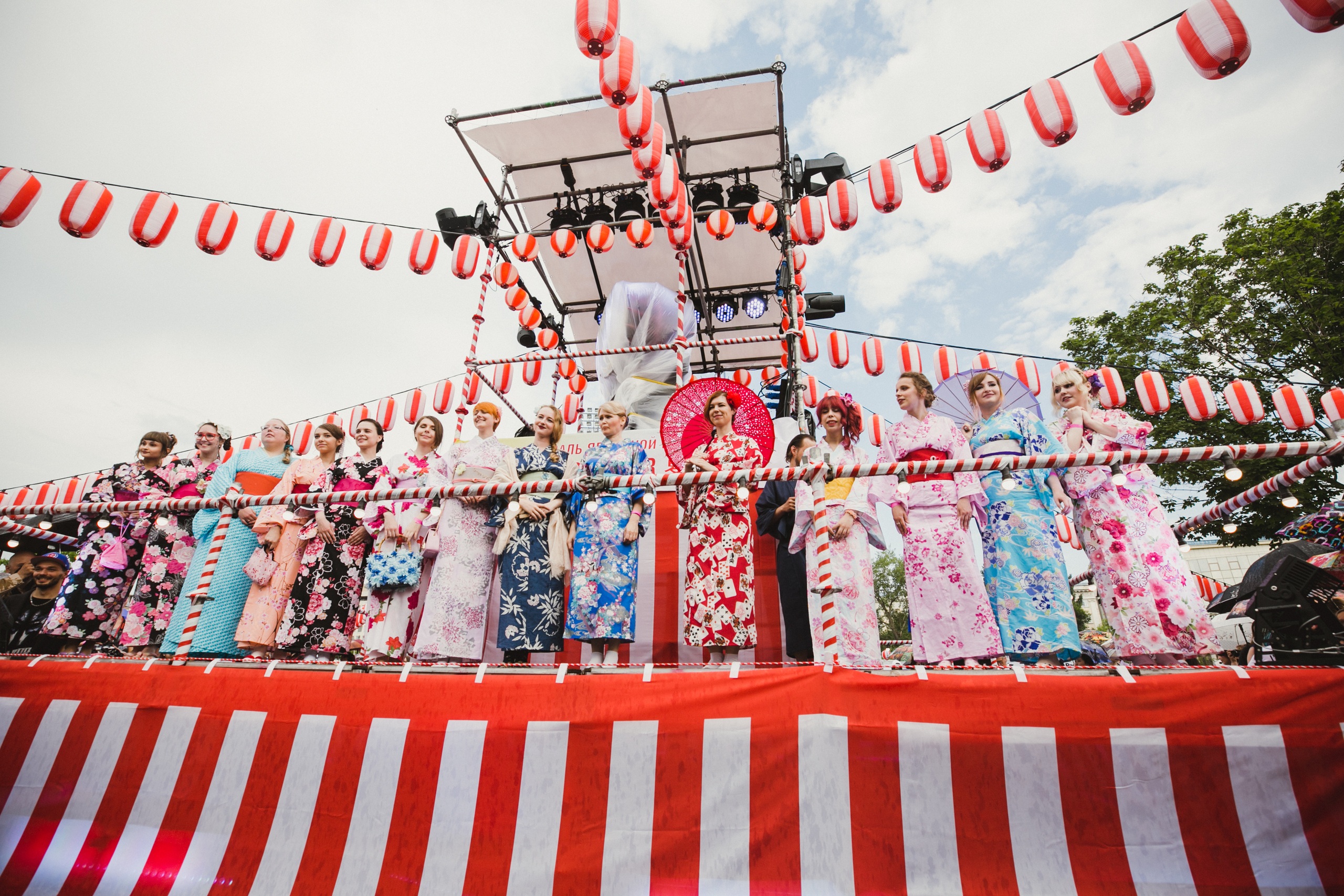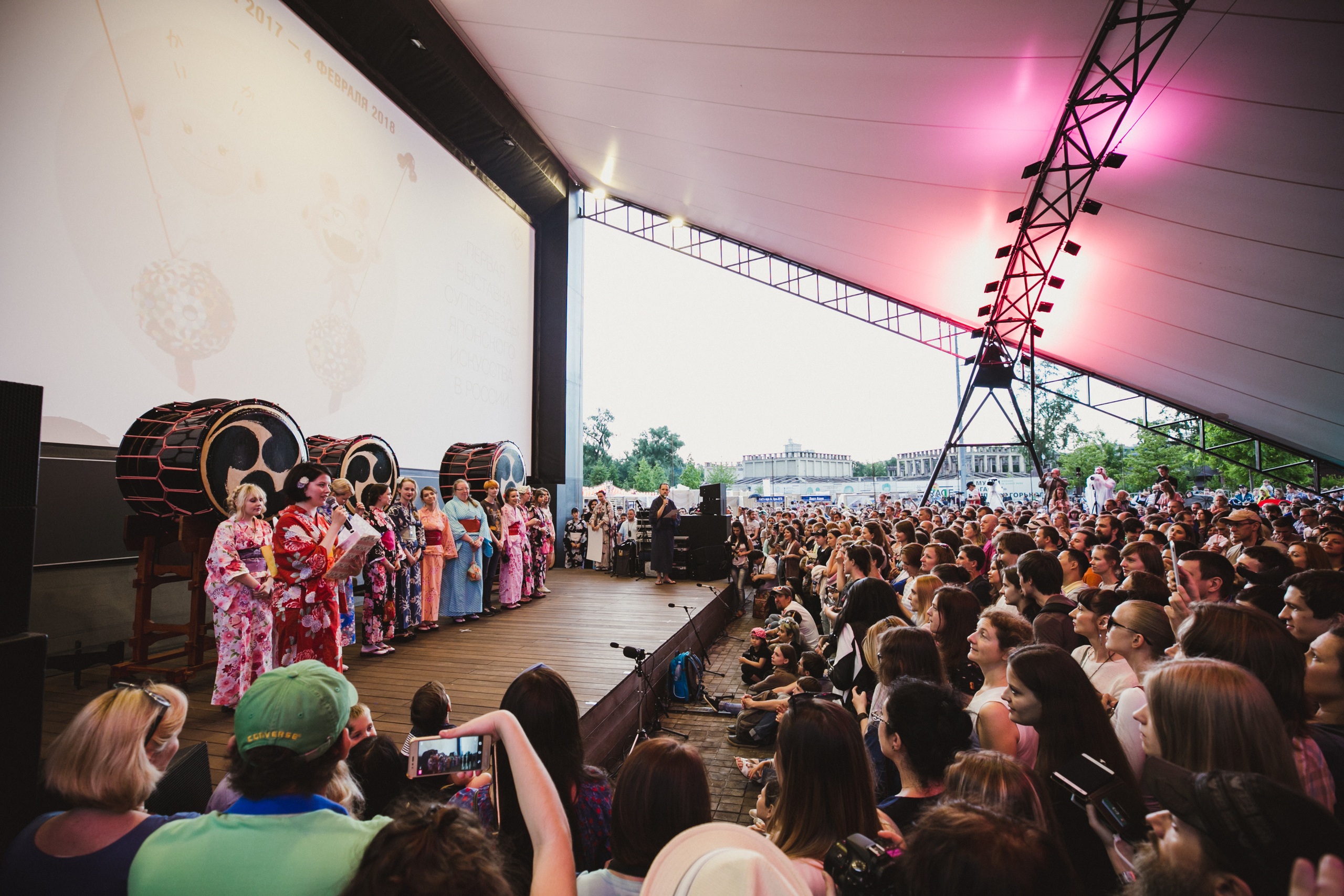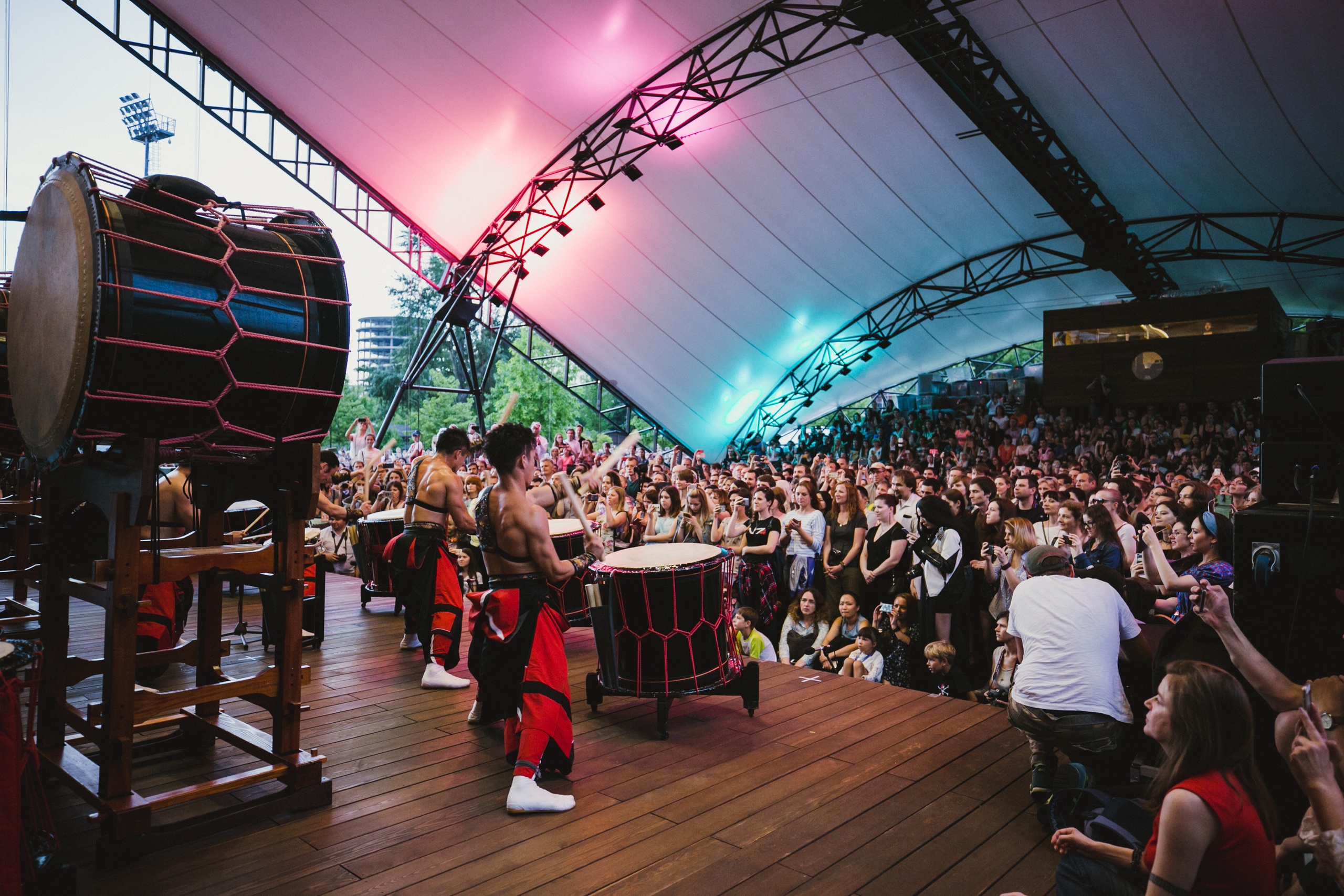Japanese culture festival J-FEST will be held in collaboration with Garage Museum of Contemporary Art.
The Japanese culture festival J-FEST will be held on July 15 and 16, 2017 in a new open-air format at Garage Museum of Contemporary Art in Gorky Park. Visitors of all ages will get a unique opportunity to dive into the world of Japanese traditional culture.
J-FEST Summer 2017 is a variation on the traditional summer festival Natsu Matsuri. In ancient times, such festivals were held to thank the gods for the good health and well-being of the people. Now festivals are held throughout Japan from July to August. The celebration includes decoration of the streets with traditional lanterns and the traditional dance Bon Odori.
Visitors will get a chance to experience the atmosphere of Natsu Matsuri, discover the art of ikebana, origami, and calligraphy, try the traditional games Go and Shogi, become acquainted with Japanese cuisine, and participate in the tea ceremony.
Lectures on Japanese art and cinema, as well as on Ittiko Kubota kimonos will be held at Garage open-air cinema. The sports area of the festival will bring together different schools and styles of Japanese martial arts, including: aikido, judo, karate, nijutsu (art of ninja), and many others. The festival will feature Yusuke Ito, master of the Kendama cup-and-ball, twice listed in Guinness World Records, as well as Mao Aska, master of traditional Japanese dance, who will teach visitors the art of Bon Odori. The world-famous Japanese drummers ASKA-GUMI will be the special guests of J-Fest.
J-FEST is initiated by Russian and Japanese companies with the support of the Embassy of Japan and annually welcomes a wide audience and introduces it to Japanese culture. In 2017, the festival is held in collaboration with Garage Museum of Contemporary Art in the run up to the first large-scale exhibition by famous Japanese artist Takashi Murakami, which opens at Garage on September 29, 2017. Consisting of five sections that each explore a particular phenomenon in Japanese culture that has been formally or semantically examined by Murakami, the show reveals the artist’s inquiries into the nuanced facets of Japanese culture and public consciousness, blurring the line between high and low culture, while merging various media into one continuous flow of images. Presenting paintings, drawings, and films by Murakami from public and private collections, the exhibition will also feature eighteenth- and nineteenth-century Japanese engravings and paintings from the collections of the Pushkin State Museum of Fine Arts in Moscow. Developed in close collaboration with the artist, the project includes a number of new works, thus transforming the entire Museum into a total Murakami universe.
The organizing committee of J-FEST 2017: Embassy of Japan in the Russian Federation (Chairman), Center of Japanese culture J-FEST (the Secretariat), Hakuhodo Rus and Japan Art Rainbow. General Sponsor: International Chodiev Foundation. The festival is held in collaboration with Garage Museum of Contemporary Art with the support of Gorky Park.
Official website: j-fest.org
